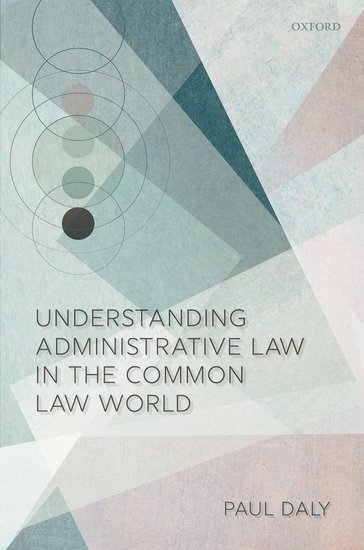Understanding Administrative Law in the Common Law World

I am happy to say that Understanding Administrative Law in the Common Law World (Oxford University Press, 2021) is now available for purchase from (as they say) all good book stores. To whet the appetite, I have made the first chapter available for free on SSRN:
This book has three goals: to enhance understanding of administrative law; to guide future development of the law; and to justify the core features of the contemporary law of judicial review of administrative action. Around the common law world, the law of judicial review of administrative action has changed dramatically in recent decades, accelerating a centuries-long process of incremental evolution. This book offers a fresh framework for understanding the core features of contemporary administrative law. Through comparative analysis of case law from Australia, Canada, England, Ireland and New Zealand, I develop an interpretive approach by reference to four values: individual self-realisation, good administration, electoral legitimacy and decisional autonomy. The interaction of this plurality of values explains the structure of the vast field of judicial review of administrative action: institutional structures, procedural fairness, substantive review, remedies, restrictions on remedies and the scope of judicial review, everything from the rule against bias to jurisdictional error to the application of judicial review principles to non-statutory bodies. Addressing this wide array of subjects in detail, I demonstrate how this pluralist approach, with the values being employed in a complementary and balanced fashion, can enhance academics’, students’, practitioners’ and judges’ understanding of administrative law. Furthermore, this pluralist approach is capable of guiding the future development of the law of judicial review of administrative action, a point illustrated by a careful analysis of the unsettled doctrinal area of legitimate expectation. I close by arguing that his values-based, pluralist framework supports the legitimacy of contemporary administrative law which although sometimes called into question in fact facilitates the flourishing of individuals, of public administration and of the liberal democratic system.
This chapter introduces the means of achieving the three objectives of this book: to enhance the understanding, guide the future development and justify the core features of contemporary administrative law. First, the historical backdrop to the development, in recent decades, of general principles of administrative law is explained. Second, the four values which provide structure to the law of judicial review of administrative action are introduced: individual self-realisation, good administration, electoral legitimacy and decisional autonomy. Third, an explanation on how these values are used to interpret the core features of contemporary administrative law is given. Fourth, the chapter addresses the book’s comparative approach, justifying the choice of Australia, Canada, England, Ireland and New Zealand as its focus. Fifth, this chapter situates the book’s interpretivist approach, which relies on a plurality of values, in the existing scholarly literature on administrative law, noting that unlike others this book does not argue that there is one single meta-value, meta-principle or meta-concept around which the subject revolves. Lastly, this chapter provides an overview of the rest of this book.
Download it here.
There will be several launch events in the coming weeks and months. Details to follow in subsequent posts!
UPDATE: Here are the videos of the three launch events (England and Ireland; Australia and New Zealand; and Canada).
England and Ireland
Australia and New Zealand
Canada
This content has been updated on January 6, 2023 at 19:42.